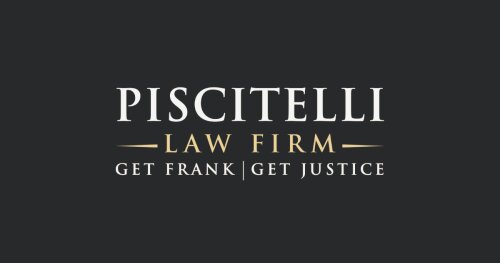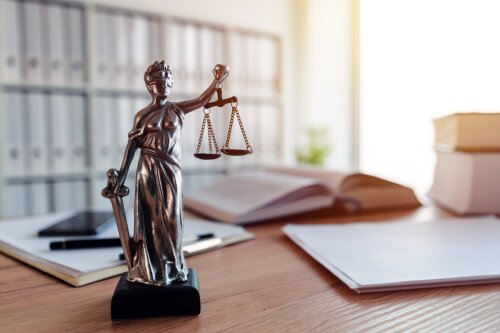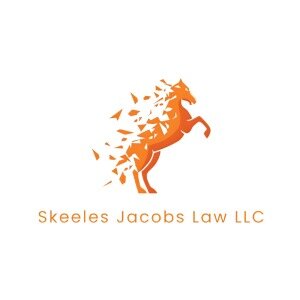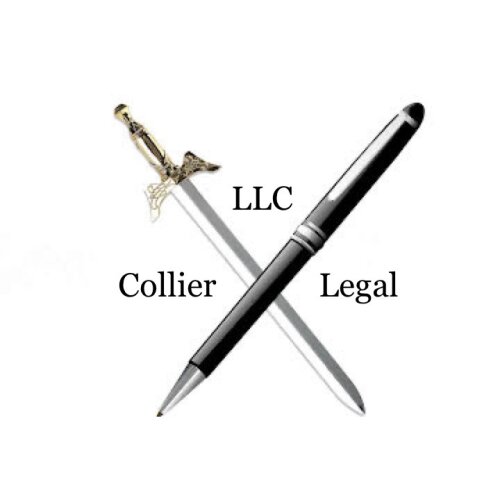Best Commercial Litigation Lawyers in Ohio
Share your needs with us, get contacted by law firms.
Free. Takes 2 min.
Or refine your search by selecting a city:
List of the best lawyers in Ohio, United States
About Commercial Litigation Law in Ohio, United States
Commercial litigation in Ohio involves legal disputes that arise out of business and commercial relationships. It typically covers issues such as contract disputes, business torts, partnership or shareholder conflicts, breach of fiduciary duty, fraud claims, non-compete agreement enforcement, and other matters concerning commercial transactions. Court proceedings related to commercial litigation can occur in both state and federal courts, depending on the specific case and the parties involved. Successful navigation of commercial litigation requires specialized legal knowledge, strategic planning, and a comprehensive understanding of Ohio's commercial laws.
Why You May Need a Lawyer
Individuals and businesses can benefit greatly from an experienced commercial litigation attorney in Ohio for many reasons. Some common situations where legal help is essential include:
- Disputes over business contracts, including breach of contract and enforcement issues
- Allegations of fraud, misrepresentation, or deceptive business practices
- Business partnership or shareholder disagreements
- Claims involving breach of fiduciary duty by business partners, officers, or directors
- Protection of trade secrets and confidential information
- Non-compete, non-disclosure, or non-solicitation agreement disputes
- Real estate issues involving commercial leases or property usage
- Debtor-creditor disputes, including collections and secured transactions
- Class action lawsuits involving multiple plaintiffs or defendants
- Tortious interference with business relationships or contracts
In addition, a skilled lawyer can help with preventative legal strategies, risk management, alternative dispute resolution, and negotiating settlements outside of court.
Local Laws Overview
Ohio's commercial litigation landscape is shaped by a mixture of state statutes, case law, and court rules. Some of the key legal areas relevant to commercial litigation in Ohio include:
- Contract Law: Governed by the Ohio Revised Code and common law, the enforceability and interpretation of contracts play a central role in many commercial disputes.
- Business Organizations: Ohio law establishes rules for corporations, partnerships, LLCs, and other business entities, impacting internal disputes and liabilities.
- Uniform Commercial Code (UCC): Ohio has adopted the UCC, which governs sales of goods, secured transactions, and certain negotiable instruments.
- Torts: Issues like fraud, misrepresentation, and interference with contractual relations fall under Ohio tort law.
- Court Procedures: The Ohio Rules of Civil Procedure set out how lawsuits must be filed, served, and litigated in Ohio’s state courts, including discovery and trial procedures.
- Alternative Dispute Resolution (ADR): Many commercial contracts require mediation or arbitration before parties can proceed to court litigation.
- Damages and Remedies: Ohio law provides for various remedies, including compensatory and sometimes punitive damages, specific performance, and injunctive relief.
Each case will draw upon unique facts and legal principles. It is important to consult a legal professional experienced in Ohio's commercial litigation environment to understand how these laws apply to your specific circumstances.
Frequently Asked Questions
What is commercial litigation?
Commercial litigation refers to the process of resolving business-related disputes through the court system. It typically involves lawsuits between businesses or between businesses and individuals regarding commercial transactions, contracts, and related matters.
What types of cases fall under commercial litigation in Ohio?
Cases can include breach of contract, partnership or shareholder disputes, business torts, non-compete agreement enforcement, debt collection, real estate disputes, fraud claims, and more.
How long does commercial litigation take in Ohio courts?
The timeline varies based on the complexity of the case, court schedules, and whether the case settles or goes to trial. Some cases resolve in a few months, while others may take a year or longer.
Can commercial litigation be resolved without going to court?
Yes. Many commercial disputes are settled through negotiation, mediation, or arbitration, often as a result of contract provisions or the parties’ preference to avoid a lengthy court process.
What should I do if my business is sued or if I need to sue someone?
Contact an experienced commercial litigation attorney as soon as possible. Timely legal advice is crucial for preserving evidence, understanding deadlines, and protecting your interests.
How much does hiring a commercial litigation attorney cost?
Costs vary based on the complexity of the case, the attorney’s experience, and the amount of time involved. Some lawyers charge hourly rates, while others may offer flat fees or work on a contingency basis for specific types of disputes.
What are compensatory and punitive damages in commercial litigation?
Compensatory damages are meant to reimburse the harmed party for losses suffered. Punitive damages, which are awarded less frequently in Ohio, are intended to punish especially wrongful conduct and deter future wrongdoing.
What is the statute of limitations for filing a commercial litigation case in Ohio?
The statute of limitations depends on the type of claim. For example, most written contract disputes must be filed within eight years, but other claims, such as fraud or tort claims, may have different timeframes. Consult an attorney to verify timelines for your case.
Can I recover attorney fees if I win my case?
In Ohio, attorney fees are generally not recoverable unless a statute or written contract specifically provides for them. Some exceptions exist, so it is important to review relevant documents and laws.
What evidence is important in a commercial litigation case?
Key evidence can include contracts, correspondence, business records, financial statements, emails, and witness testimony. Your attorney will help you gather and present the strongest possible evidence for your case.
Additional Resources
Several offices and organizations in Ohio provide useful information and support for those considering or involved in commercial litigation:
- Ohio State Bar Association - Provides resources for finding qualified attorneys and understanding Ohio business law.
- Ohio Supreme Court - Has guides on civil court procedures and rules applicable in Ohio courts.
- Local Bar Associations - Many Ohio counties and cities have bar associations that offer referrals and local legal information.
- Ohio Attorney General’s Office - Offers resources on consumer protection and business regulations.
- Small Business Development Centers - Can assist business owners with understanding legal and regulatory requirements.
Next Steps
If you believe you may be involved in a commercial dispute or need legal guidance concerning a business conflict, consider taking the following steps:
- Document all relevant events, communications, and transactions related to your legal matter.
- Review any business contracts or agreements that may affect your rights or obligations.
- Consult with an experienced Ohio commercial litigation attorney to review your situation and discuss legal strategies.
- Consider whether alternative dispute resolution methods like mediation or arbitration may be appropriate or required by contract.
- Act promptly, as waiting too long may affect your options due to statutes of limitations or loss of evidence.
An initial attorney consultation can help clarify your rights, assess your case, and provide a plan for effective resolution. Taking early action is the best way to protect your interests in any commercial dispute.
Lawzana helps you find the best lawyers and law firms in Ohio through a curated and pre-screened list of qualified legal professionals. Our platform offers rankings and detailed profiles of attorneys and law firms, allowing you to compare based on practice areas, including Commercial Litigation, experience, and client feedback.
Each profile includes a description of the firm's areas of practice, client reviews, team members and partners, year of establishment, spoken languages, office locations, contact information, social media presence, and any published articles or resources. Most firms on our platform speak English and are experienced in both local and international legal matters.
Get a quote from top-rated law firms in Ohio, United States — quickly, securely, and without unnecessary hassle.
Disclaimer:
The information provided on this page is for general informational purposes only and does not constitute legal advice. While we strive to ensure the accuracy and relevance of the content, legal information may change over time, and interpretations of the law can vary. You should always consult with a qualified legal professional for advice specific to your situation.
We disclaim all liability for actions taken or not taken based on the content of this page. If you believe any information is incorrect or outdated, please contact us, and we will review and update it where appropriate.
Browse commercial litigation law firms by city in Ohio
Refine your search by selecting a city.















